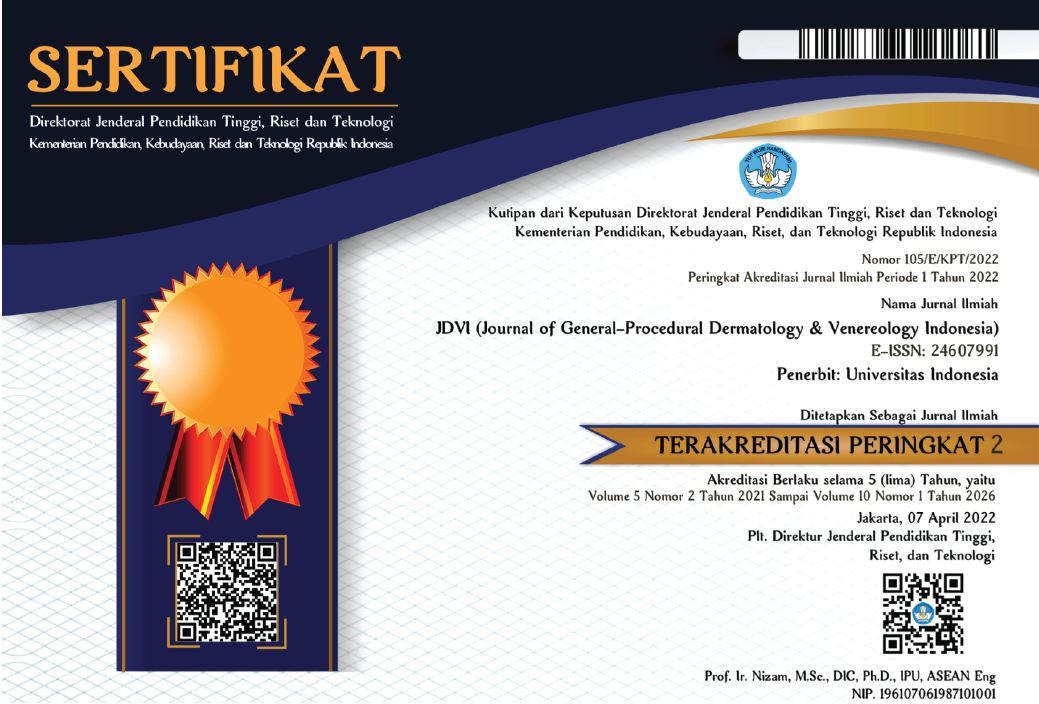Abstract
Background: The association between psoriasis and metabolic syndrome is appealing as the two may share a similar cross-linking systemic inflammation process. The inflammation processes occurring in obesity and psoriasis may aggravate one another. This raised the question of whether a low-calorie diet would possibly reverse the aforementioned process. This study aims to determine whether calorie restriction reduces psoriasis area and severity index (PASI) in obese patients with moderate-to-severe psoriasis receiving conventional treatment compared to no calorie restriction.
Methods: We searched Pubmed/Pubmed Central, ScienceDirect, Cochrane library, EBSCOhost, and Scopus databases using keywords derived from our clinical question. The inclusion criteria were randomized clinical trial (RCT) or systematic review, published in English, and available in full-text.
Results: We obtained 2 systematic reviews with meta-analyses by Ko et al. and Upala et al. Ko et al. included 6 RCTs which found that the inclusion of a low-calorie diet shows significant improvement in PASI 75 compared to standard therapy (RR 1.66; 95%CI 1.07, 2.58). Upala et al. also found significant improvement in PASI 75 in a meta-analysis of 7 RCTs (Pooled OR 2.92; 95%CI 1.39, 6.13), but shows moderately high heterogeneity between studies. Other secondary outcomes have also shown significant improvements, such as quality of life and metabolic parameters.
Conclusion: The intervention of a low-calorie diet may significantly reduce PASI, improve quality of life and reduce comorbidities in obese patients with moderate-to-severe psoriasis, and thus can be recommended in psoriasis management.
Recommended Citation
Sari, Lovena; Jusuf, Nelva Karmila; and Putra, Imam Budi
(2022)
"Bacterial sensitivity pattern to antibiotics in acne vulgaris at Universitas Sumatera Utara Hospital Medan, Indonesia in 2019,"
Journal of General - Procedural Dermatology & Venereology Indonesia: Vol. 6:
Iss.
1, Article 1.
DOI: 10.19100/jdvi.v6i1.254
Available at:
https://scholarhub.ui.ac.id/jdvi/vol6/iss1/1
Included in
Dermatology Commons, Integumentary System Commons, Skin and Connective Tissue Diseases Commons










